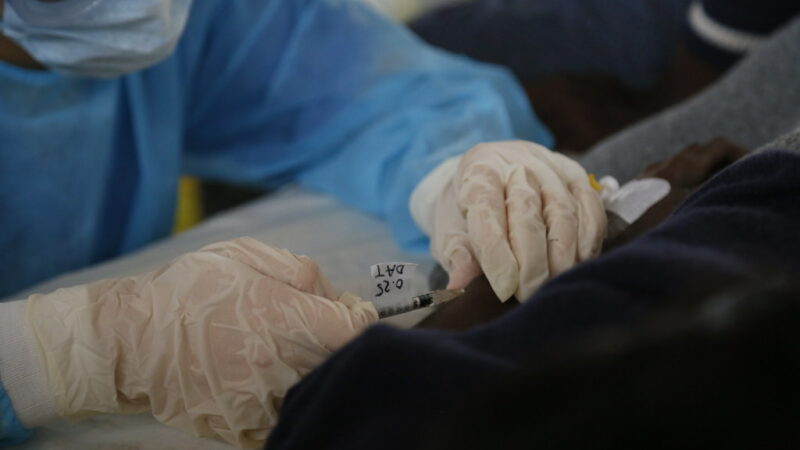Stonewall, Women's Budget Group and Scope demand answers on government's handling of coronavirus.

Campaigners have stepped up calls for an urgent equality assessment of the government’s coronavirus response, amid growing evidence that already-marginalised people are being hit hardest.
On Friday Shadow Secretary of State for Women and Equalities, Marsha de Cordova MP, demanded the government urgently undertake and publish a meaningful equality impact assessment of its Coronavirus Recovery Strategy, on groups with protected characteristics, including women, LGBT+ people, disabled people and BAME communities.
Ms de Cordova said: “We have already seen how Covid-19 has exposed and exacerbated economic, health and social inequalities in our society. It is vital that the groups most at-risk to in this crisis, including the BAME community, women and disabled people, are protected in the government’s plans to ease lockdown.”
Now several equality groups thrown their weight behind the calls.
Labour are understood to be concerned that the Government’s Coronavirus Recovery document does not acknowledge the additional risks faced by BAME communities, despite figures released by the ONS which find that some BAME people are four times more likely to die of Covid 19 than their white counterparts.
On the 4th May 2020, the APPG on Disability called for the Government to urgently “undertaking an impact assessment of the recovery plan” for disabled people, who face particular difficulty in relation to employment. The letter was signed by 100 cross-party Parliamentarians.
Mary Ann Stephenson from the Women’s Budget Group told Left Foot Forward: “We know that the health, economic and social impacts of the pandemic are impacting disproportionately on different groups. The data shows that men are more likely to die from Covid 19 but women are hit harder by social and economic impacts.
“Similarly older people are more likely to die from Covid-19 but younger people are more likely to lose their jobs. Black and minority ethnic people and disabled people are at both an increased health risk and increased economic and social risk.
“It is vitally important that the government carries out and publishes a meaningful equality impact assessment of their response to the crisis, and of their plans for the recovery.”
Laura Russell, Head of Policy at Stonewall, told LFF: “The Covid-19 pandemic is having a huge impact on the lesbian, gay, bi and trans community. The inequality that LGBT people already experience means that the crisis is having a bigger impact on the health and welfare of the community. We also know that lockdown has forced more LGBT people into unsafe home environments, and made it harder for people to access the support they rely on.
“LGBT people of colour, trans people, and those living in poverty are more exposed not only to the coronavirus, but also the social and economic consequences in its wake. It is vital that the government takes these inequalities into account in its response to the crisis through action such as Equality Impact Assessments, to ensure that LGBT people are able to access vital support services and networks that they need to survive.”
James Taylor, Executive Director of Strategy, Impact and Social Change at disability charity Scope, said: “Disabled people have been hit harder in the coronavirus crisis, yet many feel forgotten by government. Huge numbers have struggled to access food and essentials and PPE for carers and personal assistants. The prospect of extended isolation is also taking a heavy toll on disabled people’s mental health and wellbeing.
“As we come out of lockdown, the government must take every step to ensure disabled people are not disproportionately affected.”
According to the Centre for Labour and Social Studies, only one in ten of those on the lowest salaries are able to work from home. Following the government’s Coronavirus Recovery Strategy announcements, many could face pressure to return to work and risk their safety.
This is likely to disproportionately impact women, who represent 69% of low-paid workers, and some BAME people who are four times more likely to work in industries that have been shut down as a result of Covid 19.
Under the 2010 Equality Act, the Government has a Public Sector Equality Duty to “advance equality of opportunity between persons who share a… protected characteristic”.
Josiah Mortimer is co-editor of Left Foot Forward.
To reach hundreds of thousands of new readers we need to grow our donor base substantially.
That's why in 2024, we are seeking to generate 150 additional regular donors to support Left Foot Forward's work.
We still need another 117 people to donate to hit the target. You can help. Donate today.



